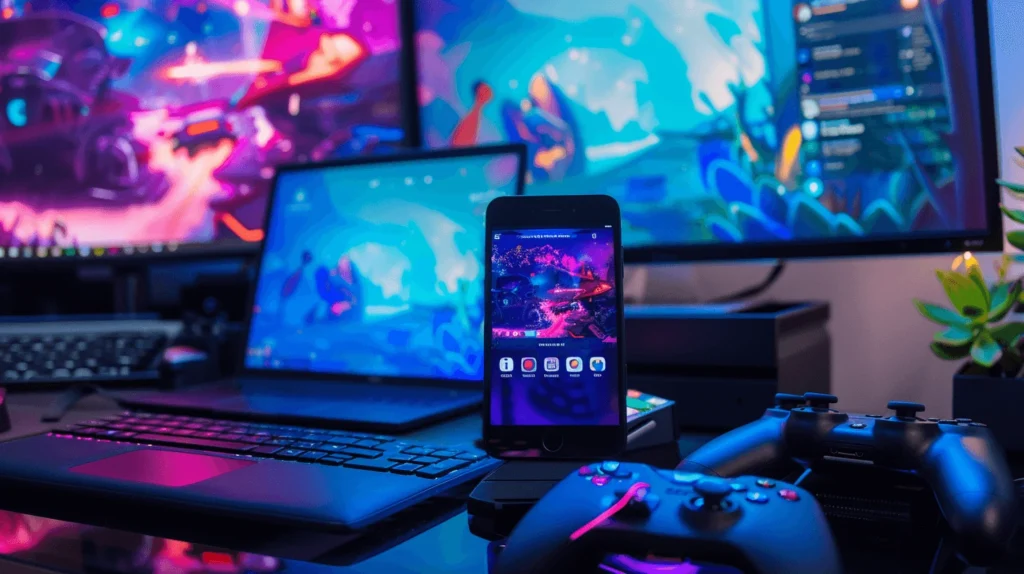Game engines power iGaming and interactive entertainment. Developers may build, test, and distribute games on all platforms using their tools. Unity, Unreal, and Godot are often mentioned in fast-moving technological discussions. Since each has its own benefits, studios, companies, and entrepreneurs should recognize the differences before picking one.
How Game Engines Help with Development?
Game engines allow developers to build complex game environments without starting from scratch. They contain picture, physics, sound, script, and asset management tools. These engines also let you deploy across platforms, which is very important in today’s industry as gamers demand flawless gaming on mobile, web, and desktop devices. Choosing the proper engine is important for organizations that want to go into gaming or iGaming since it affects scalability, performance, and the entire user experience.
Unity: Adaptability and Market Reach
Unity is well-known in the development industry since it can be used in many different ways. It is easy to use and lets developers make both 2D and 3D games just as easily. Indie studios generally utilize Unity because it makes it easier for new people to get started with its simple interface and huge collection of assets.
Unity is utilized in a lot of fields other than gaming, such as virtual reality, simulation, and augmented reality. Businesses can reach more people since they can export projects to several platforms, including iOS, Android, PC, and consoles. Startups that want to get their products to market quickly generally use Unity because it speeds up production times without hurting innovation.
From the point of view of iGaming, Unity makes it possible to make games that are light yet still look good. Game Development and other companies may use Unity to create games that are fun and responsive for players all around the globe.
Unreal Engine: Great Power and Looks
For graphics and processing-intensive tasks, Epic Games’ Unreal Engine is excellent. AAA developers like its real-time rendering and movie-quality visuals. For realistic slot animations, decor, and large-scale multiplayer games, Unreal delivers the polish that keeps gamers coming back.
One of Unreal’s greatest features is Blueprint. It helps non-coders construct complex mechanics via visual scripting. This combines ease of use with depth, enabling teams to experiment without knowing much coding.
Game Development Services can use Unreal’s powerful rendering features to create gaming platforms that look and feel current, sleek, and fun to play in the iGaming industry. Unreal is the best choice for organizations that want to provide high-end experiences.
Godot: Open Source and Easy for Developers
Unity and Unreal get a lot of press, but Godot has swiftly become known as a lightweight, open-source alternative. Its biggest draw is how easy it is to use. Developers may change the engine itself since it is open-source. This lets them control features that are frequently only available to paying customers in other engines.
The Godot engine is great for making 2D games. It works well with small yet scalable applications, which makes it a great alternative for entrepreneurs who want to try out new ideas or develop fun browser-based games. For small teams, not having to pay for licenses is a cost-effective way to keep the same features.
Slot Game Development companies leverage Godot to create iGaming ventures quickly, cheaply, and in a way that can grow. Its open-source base makes it easy for operators to create their own platforms.
How to Choose Between Godot, Unreal, and Unity
The appropriate engine for your project depends on your goals. Unity is still a good solution for anybody who wants something easy to set up, compatible with many platforms, and plenty of assets. Unreal is great for realistic visuals and immersive experiences. At the same time, Godot is great for little projects, trying out new things, or teams that appreciate open-source freedom and low costs.
When businesses join the iGaming industry, they also need to think about how their selected engine may develop over time, how many licenses it needs, and how scalable it is. Working with a development provider ensures that the correct technology is used to reach the project’s objectives.
In conclusion
The future of gaming and iGaming rests on how well companies leverage Game Engines to make user experiences smooth and fun. Unity, Unreal, and Godot all have their own strengths, but the key to success is to choose the correct engine for the project’s concept.
TRUEiGTECH offers specialized help with Game Development and iGaming Software Services for operators and entrepreneurs who want custom solutions. Any game idea may become a market-ready success with the right partner and the appropriate engine.



